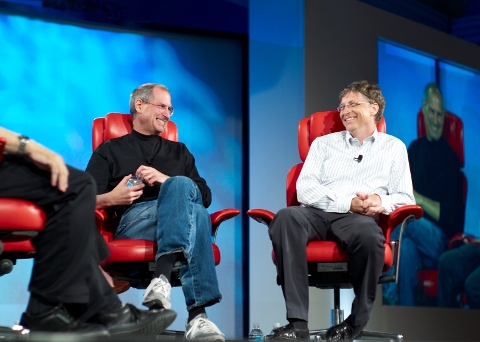

National heroes or national felons with PR facelift?
(Photo by Joi Ito from Inbamura, Japan)
COMPANIES like PayPal, MasterCard and Visa are known to be defending their government's bad behaviour. It was all over the news this month. Amazon arguably falls under the same category, but guess who else? "Apple removes Wikileaks app? North Korea are more open than Apple," wrote Gordon Sinclair regarding this very recent news. Yes, Apple censored Wikileaks without specifying a reason, but there are excuses. TechDirt is not typically hostile towards Apple but its latest headline says: "Apple The Latest To Convict Wikileaks Despite No Charges Or Trial; Kills Wikileaks App For Violating Unnamed Laws"
The thing is, Wikileaks hasn't even been charged with a crime yet, let alone found guilty of one, so it's not clear why all these companies claim that the app does not comply with he law. Also, while we're still waiting for evidence of anyone actually put in "harm's way" due to Wikileaks, that reasoning doesn't make any sense either. The information found on Wikileaks is being written about in all sorts of major news publications -- so if a Wikileaks app is putting people in harm's way, then so is the Safari browser on the iPhone that can be used to access all the same information.
But, an even bigger point is buried towards the end in an update, where Greenwald asks:Why aren't Visa, MasterCard, Paypal, their web hosting company and various banks terminating their relationships with The New York Times, the way they all did with WikiLeaks: not only for the NYT's publication of many of the same diplomatic and war cables published by WikiLeaks, but also for this much more serious leak today in which WikiLeaks was completely uninvolved?And, I think, we can add Apple to that list. After all, if these companies keep claiming that Wikileaks "broke the law" (as most of the companies listed here are saying), why do they not feel the same way about the NY Times?
Bill Gates is too shrewd a businessman to want to actually take over a money-losing, failing industry like the media. (Though newspapers today do have something in common with software; one person produces the original product and then millions obtain copies of it for free.)
No, what I want to talk about is the Gates Foundation’s funding of media. I’ve already written plenty about this … maybe too much.
More accurately, I wanted to talk with the media folks at the Seattle philanthropy about their perspective on “partnering” with the media.
These kind of arrangements confuse or disturb some people and I’ve given the media folks at the Gates Foundation a bit of grief over the past few months about the nature of some of these partnerships. This might seem kind of odd, I know, since I work for NPR, which also has been funded by the world’s largest philanthropy to report on global health and development issues — and which is what I do (even though I get no Gates money).